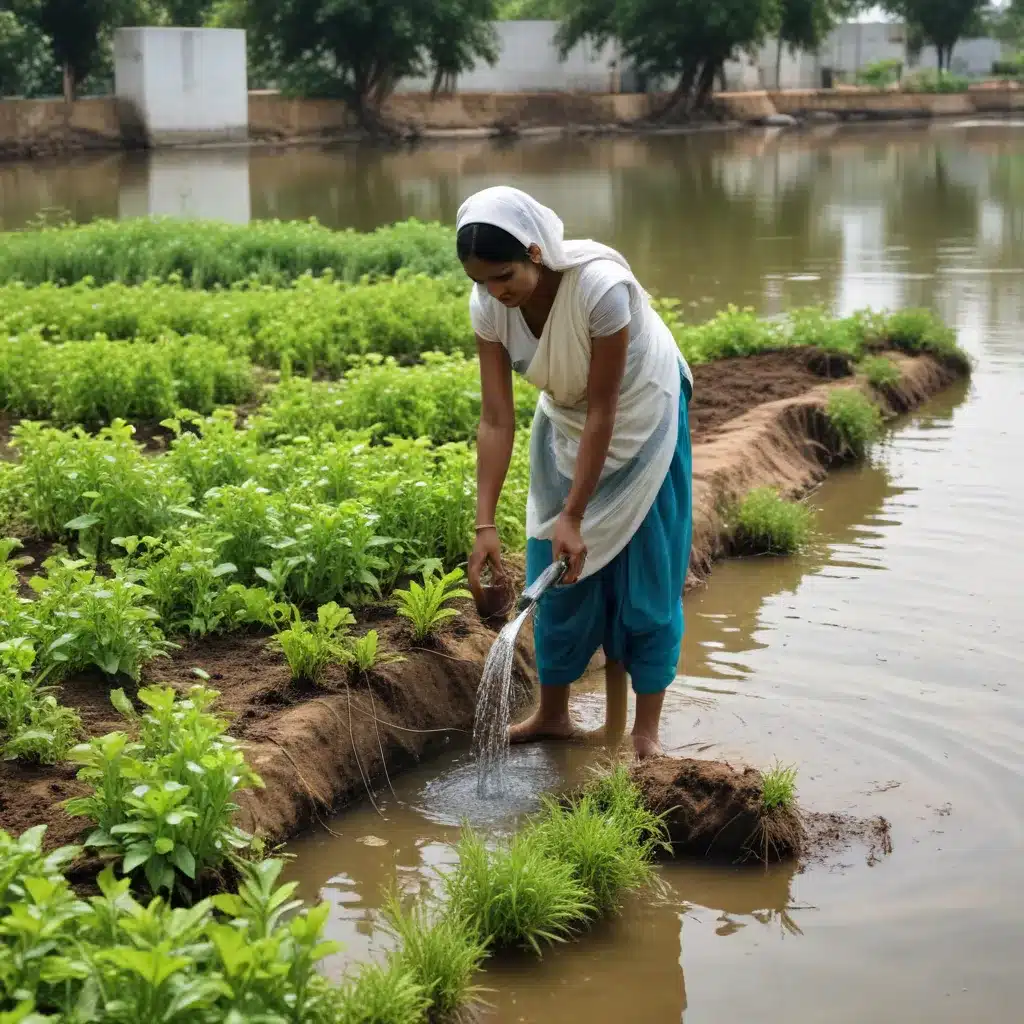
The Water Crisis in India’s Burgeoning Cities
India’s rapid urbanization has placed immense pressure on its water resources, with cities like Hyderabad struggling to meet the growing demand for clean, reliable water. As the population explodes and industrialization intensifies, the quality and availability of water have become critical concerns. Addressing these challenges requires a multifaceted approach that considers both the immediate needs and long-term sustainability of water management.
One promising solution that has garnered increasing attention is the role of urban agriculture in enhancing water security. By integrating food production within the urban landscape, cities can not only improve access to fresh, nutritious produce but also contribute to the sustainable management of water resources. This article delves into the potential of urban agriculture in Hyderabad, exploring how this innovative approach can bolster the city’s water quality and overall water security.
Understanding Hyderabad’s Water Landscape
Hyderabad, the capital of Telangana state, is a rapidly growing metropolitan area with a population of over 10 million. The city’s water needs are primarily met by surface water sources, such as the Husainsagar and Osmansagar lakes, as well as groundwater extraction. However, the increasing demand for water, coupled with the effects of climate change and pollution, have put a significant strain on these water bodies.
Recent studies have highlighted the alarming state of water quality in Hyderabad. A study published in the Science of the Total Environment journal found that the city’s surface water sources are heavily contaminated with various pollutants, including heavy metals, pesticides, and microbiological contaminants. This not only poses risks to public health but also undermines the overall water security of the region.
Moreover, the overexploitation of groundwater resources has led to a steady decline in water tables, exacerbating the crisis. As reported in the Environmental Research Letters, the groundwater levels in Hyderabad have been dropping by an average of 0.5 meters per year, making access to clean, reliable water an increasingly challenging task.
Embracing Urban Agriculture: A Holistic Approach to Water Security
In the face of these pressing water challenges, urban agriculture has emerged as a promising solution to enhance Hyderabad’s water security. By integrating food production within the city’s landscape, this approach can offer multiple benefits, including:
1. Reduced Demand on Municipal Water Supplies
Urban agriculture can decrease the reliance on municipal water supplies by enabling the local production of fruits, vegetables, and other crops. This, in turn, reduces the strain on the city’s water infrastructure and allows for more efficient water management.
2. Improved Water Quality through Wastewater Reuse
Urban farms can utilize treated wastewater for irrigation, thereby reducing the burden on freshwater sources. This not only conserves water but also contributes to the overall water quality by diverting polluted wastewater from entering natural water bodies.
3. Groundwater Recharge and Improved Soil Moisture
The integration of green spaces and permeable surfaces associated with urban agriculture can enhance groundwater recharge and improve soil moisture levels. This helps to replenish the city’s depleted groundwater reserves and mitigate the effects of overexploitation.
4. Reduced Runoff and Erosion
Urban agricultural practices, such as the use of mulch and cover crops, can help reduce surface runoff and soil erosion. This, in turn, minimizes the transport of pollutants and sediments into local water sources, contributing to improved water quality.
5. Community Engagement and Awareness
Urban agriculture initiatives can serve as platforms for community engagement and education, fostering a deeper understanding of the importance of water conservation and sustainable water management practices. This can inspire behavioral changes and empower citizens to become active stewards of their local water resources.
Implementing Urban Agriculture in Hyderabad
To harness the full potential of urban agriculture in enhancing Hyderabad’s water security, a comprehensive and collaborative approach is required. This involves the following key steps:
-
Policy and Regulatory Framework: Developing a supportive policy and regulatory environment that encourages the integration of urban agriculture within the city’s land use and water management plans. This can include incentives, guidelines, and streamlined approval processes for urban farming initiatives.
-
Capacity Building and Training: Providing educational and training programs for urban farmers, community members, and relevant stakeholders to promote best practices in sustainable water management, wastewater treatment, and soil conservation.
-
Innovative Water Management Techniques: Incorporating advanced water-saving technologies, such as drip irrigation, rainwater harvesting, and decentralized wastewater treatment systems, into urban agricultural systems to maximize water efficiency and reduce the burden on the city’s water infrastructure.
-
Partnerships and Collaboration: Fostering partnerships between the local government, urban planning authorities, agricultural experts, and community organizations to coordinate efforts, share knowledge, and ensure the successful implementation of urban agriculture initiatives.
-
Monitoring and Evaluation: Establishing robust monitoring and evaluation mechanisms to track the impact of urban agriculture on water quality, groundwater levels, and overall water security. This data can inform decision-making and guide the continuous improvement of these initiatives.
Unlocking the Potential of Urban Agriculture in Hyderabad
By embracing the power of urban agriculture, Hyderabad can take a significant step towards enhancing its water security and addressing the pressing water quality issues. This holistic approach not only provides a sustainable solution to the city’s water challenges but also offers numerous co-benefits, such as improved food security, enhanced community resilience, and the promotion of environmental sustainability.
As Hyderabad continues to grapple with the complexities of urban water management, the integration of urban agriculture presents a promising pathway forward. By working together to implement these innovative strategies, the city can ensure a more resilient and water-secure future for its growing population.
To learn more about the Joint Action for Water initiative and explore other resources on sustainable water management, please visit https://jointactionforwater.org/.

